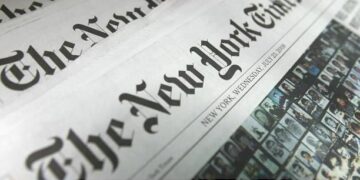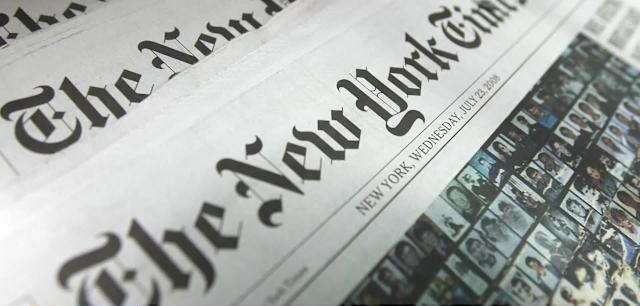A Lawsuit Loud Enough to Echo
Donald Trump has filed a $15 billion defamation lawsuit against The New York Times, its journalists, and the publisher, claiming that several articles and a book misrepresented him ahead of the 2024 election. The suit was lodged in Florida. Trump alleges the newspaper abandoned its journalistic standards, acting instead as a partisan voice for his opponents.
He wasn’t shy in his statements. On social media, he called the Times “one of the worst and most degenerate newspapers in the nation’s history” and accused it of spreading lies, hurting his reputation, and even interfering in the election.
What Exactly Trump Points To
The core of the lawsuit centers around:
- A book titled “Lucky Loser: How Donald Trump Squandered His Father’s Fortune and Created the Illusion of Success”, co-written by NYT reporters Susanne Craig and Russ Buettner. Trump claims parts of it were false or misleading.
- A few Times articles published shortly before the 2024 election that Trump says wrongly portrayed his business dealings, his reality-TV show The Apprentice, and his image as a public figure.
- Alleged harms including damage to his reputation, personal and business losses, and the value of his media company. He demands not just compensation but also “punitive damages” to be decided by the court.
Pushback, Critics, and Concerns
The New York Times has pushed back, calling the lawsuit meritless and part of what its CEO describes as an anti-press playbook. She suggested that this is less about correcting alleged factual mistakes and more about using litigation to intimidate the press.
Legal experts agree many of Trump’s previous defamation suits haven’t survived in court, often dismissed because public figures must meet a high bar for proving actual malice — that is, that the publisher knew something was false or had reckless disregard for the truth.
What This Means for Press, Politics, and Public Trust
This lawsuit is more than just a legal battle. It raises big questions:
- Free speech vs accountability: How much leeway do media outlets have to report critically or push boundaries, especially regarding public figures? And where is the line between harsh opinion and defamation?
- Chilling effect: Smaller outlets may fear being sued, causing them to self-censor—avoiding robust reporting out of concern for legal backlash.
- Truth, perception, and media trust: In an era of viral claims and echo chambers, a lawsuit like this feeds into debates about what is “true,” who gets to decide, and how much the media should be trusted or challenged.
What Comes Next
The case will unfold in court, but many expect Trump’s legal team to push hard to force discovery, demand internal memos, past drafts, and correspondence. The Times will likely defend on grounds of press freedom, truth of the reporting, and First Amendment protections.
Even if the lawsuit doesn’t succeed in getting $15B, its ripple effects may already be doing what Trump seems to intend: raising his voice, setting a tone for how media and politicians interact, especially in the age of social media, where every story can be amplified or attacked instantly.
In the end, this is more than a lawsuit. It feels like a turning point: one that ponders whether criticism is part of democracy—or if formidable legal threats will become one of its new tools.
















